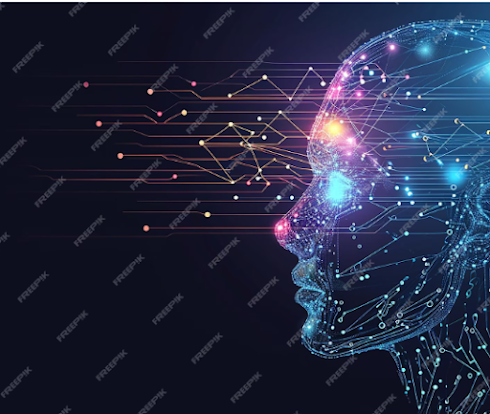Artificial intelligence (AI) refers to the simulation of human intelligence in machines programmed to think and learn like humans.
Introduction of artificial intelligence:
Artificial intelligence (AI) refers to the simulation of human intelligence in machines programmed to think and learn.
Artificial intelligence encompasses a wide range of technologies, from simple algorithms to complex neural networks, which enable machines to perform tasks that normally require human intelligence, such as speech recognition, decision making and language translation.The main areas of artificial intelligence are:
Banner
1. **Machine Learning**: Algorithms that allow computers to learn from data and make predictions based on data.
2. **Natural Language Processing (NLP)**: Technologies that enable machines to understand and respond to human language.
3. **Computer Vision**: Technology that allows machines to interpret and process visual information about the world.
.4. **Robotics**: integrating artificial intelligence into machines to perform tasks independently.
Artificial intelligence is used in many fields, such as healthcare to diagnose diseases, finance to detect fraud and autonomous driving in transportation. Advances in artificial intelligence can revolutionize industries, make them more efficient and solve complex problems, but they also raise ethical and societal concerns about labor mobility, privacy and bias in decision-making..

These systems can perform tasks such as problem solving, decision making, language understanding and visual perception. Artificial intelligence can be classified as follows:
1. **Narrow AI (weak AI)**: Designed for a specific task, such as voice assistants (eg Siri, Alexa) or recommendation systems (eg Netflix, Amazon) .
2. **General AI (Strong AI)**: Capable of understanding, learning and applying knowledge to a wide range of tasks similar to human cognitive abilities. This level of artificial intelligence is still theoretical and has not yet been achieved.
3. **Artificial Super Intelligence (ASI)**: a hypothetical artificial intelligence that surpasses human intelligence in all aspect
In the future, artificial intelligence (AI) will have a transformative effect on various aspects of society. Here are some of the main areas where AI should play an important role
Artificial intelligence in future
1. **Healthcare**: AI improves diagnostic accuracy, personalizes treatment plans and simplifies administrative tasks. Advanced AI algorithms can analyze medical images, predict diseases and help find cures.
2. **Transportation**: Autonomous vehicles, including self-driving cars, trucks and drones, are revolutionizing transportation. Artificial intelligence optimizes traffic management, reduces accidents and improves fuel efficiency.
3. **Education**: Personal learning platforms powered by artificial intelligence meet the individual needs of students and provide personalized learning. AI can also automate administrative tasks, allowing teachers to focus more on teaching.
.4. **Finance**: Artificial intelligence improves fraud detection, risk management and customer service in the financial sector. Automated trading systems and robo-advisors are becoming more sophisticated and offer better investment strategies.
5. **Customer Service**: AI chatbots and virtual assistants handle routine customer questions, improving response time and customer satisfaction. These systems are becoming more sophisticated, handling complex queries and providing more personalized interactions
.6. **Manufacturing**: AI-based automation improves production efficiency, quality control and predictive maintenance. Smart factories use artificial intelligence to optimize supply chains and reduce downtime.
7. **Environmental Sustainability**: AI can help monitor and manage natural resources, predict environmental changes, and develop sustainable practices. Artificial intelligence systems help with climate modeling, conservation measures and disaster situations.
8. **Entertainment**: AI is revolutionizing content production, recommendation systems and virtual experiences. Art, music and storytelling created by artificial intelligence are becoming more common and offer new forms of entertainment.
9. **Security and Surveillance**: AI improves threat detection, cyber security and surveillance systems. Advanced algorithms help identify and reduce information security risks in real time.
10. **Work**: AI automates repetitive tasks, allowing humans to focus on more creative and strategic activities. Collaboration between humans and artificial intelligence increases productivity and innovation.
However, the widespread adoption of AI also raises ethical and social issues, such as job displacement, privacy issues and the need for open and accountable AI systems. Balancing the benefits of AI with these challenges is critical to its successful integration into society..
This concept is often discussed in a theoretical and speculative context.The main areas of artificial intelligence are machine learning, neural networks, natural language processing and robotics. Artificial intelligence has applications in various industries, including healthcare, finance, transportation and entertainment, and has a significant impact on society and industry..








0 Comments